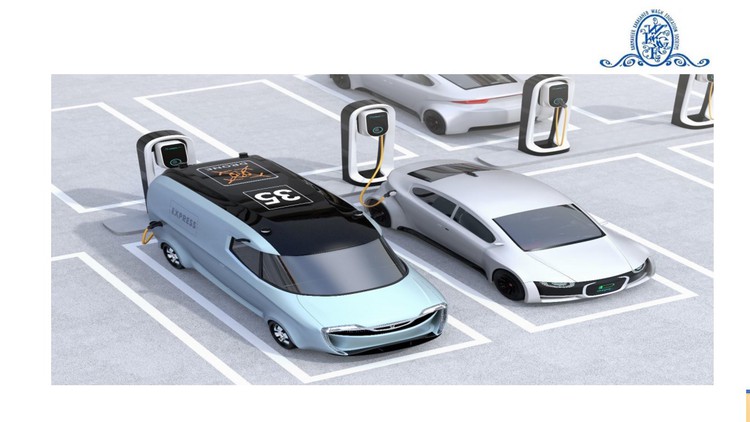
Installation and Maintenance
What you will learn
Understand importance and need of Electric Vehicles
Understand the different charging Technologies, Batteries and Connectors
Get familiar with Charging Infrastructure for EVs
Understand different types of Power Converters used in Electric Vehicles
Study the Battery Management System and charger Communication Protocol
Troubleshoot and locate fault in Charging System of EV
Troubleshoot and locate fault in Charging Station
Why take this course?
Embark on a dynamic career path in the burgeoning field of **Installation, operation, and maintenance** of **Charging Infrastructure for Electric Vehicles**! With the electric vehicle (EV) market accelerating, the demand for skilled EV charging technicians is soaring. This course offers a comprehensive dive into the world of EV charging, providing you with the essential knowledge to excel in this exciting sector. 🔋
## Course Outcomes 🚀
After successful completion of this course, you will be equipped to:
– **Understand the importance and need of Electric Vehicles** in today’s transportation ecosystem.
– **Master the different charging technologies**, including an in-depth look at **Batteries** and **Connectors**.
– Get familiar with the intricacies of **Charging Infrastructure**.
– Dive into understanding various types of **Power Converters**.
– Study the **Battery Management System (BMS)** and its communication protocols.
– Troubleshoot and locate faults in both the Charging System of EVs and Charging Stations.
## Course Outline 📚
### Module 1: Foundations of Electric Vehicles 🏗️
– **Need of Electric Vehicles**
– **Types of Batteries** used in electric vehicles.
– **Different Charging Technologies and Standards**.
– **Types of EV Connectors** as per industry standards.
#### Learning Objectives of Module 1: 🎓
– **Knowledge** about the need for Electric Vehicles to reduce emissions and promote cleaner energy.
– **Understanding** of the various types of batteries that power electric vehicles.
– **Study** the details of charging infrastructure and the different types of connectors as per existing standards.
### Top Five Reasons to Choose an Electric Vehicle 🚘🌿
1. **Save Money**: Lower fuel costs and fewer moving parts translate to cheaper maintenance.
2. **Cut Emissions**: EVs produce zero tailpipe emissions, helping to reduce air pollution.
3. **Better Driving Experience**: Instant torque delivers a smooth, fast acceleration.
4. **Reduce Oil Use**: Every electric vehicle displaces the need for gasoline or diesel.
5. **Convenience**: Charge your EV at home and avoid the hassle of oil changes and gas station visits.
### Electric Battery Technology 🔋
The success of an electric car hinges on its battery pack, which must efficiently provide current for the motor over the vehicle’s lifespan without significant degradation. This involves a sophisticated balance between voltage, current demand, and longevity, which is achieved through advanced battery technologies.
### Module 2: Charging Infrastructure Mastery ⚡
– **Charging Infrastructure** design and implementation.
– **Power Converters** and their role in the EV ecosystem.
– **Battery Management System (BMS)** functionality.
– **EV Charger Communication Protocols**.
#### Learning Objectives of Module 2: 🎓
– **Understand the charging infrastructure**, from residential installations to public networks.
– **Learn about power electronics converters** and their applications in EV charging systems.
– **Gain insight into Battery Management Systems** to ensure optimal battery performance and longevity.
– **Explore vehicle charging infrastructure**, understanding the various standards and connectors.
#### What is an Electric Vehicle Supply Unit (EVSE)? 🏠⚡️
An EVSE, or electric vehicle service equipment, is a device that delivers electricity from a power source to an electric vehicle. It’s typically a wall-mounted unit or a standalone system designed for safe and efficient charging of electric vehicles.
## Functions of Battery Management System (BMS): 🛠️
1. **Discharge Control**: Monitors and controls the discharge current to prevent over-discharge.
2. **Charging Control**: Ensures that the battery is charged within safe limits to maximize lifespan.
3. **State of Charge (SoC) Determination**: Accurately calculates how much energy the battery currently holds.
4. **State of Health (SoH) Determination**: Assesses the battery’s capacity retention over time.
5. **Cell Balancing**: Adjusts individual cell voltages to maintain a stable balance and prevent potential hazards.
6. **Logbook**: Records charging events, state of health, and other critical data for diagnostics and maintenance.
7. **Communication**: Facilitates communication with the vehicle’s systems and external devices to optimize performance and safety.
Enroll now to jumpstart your expertise in EV charging infrastructure and secure your place in this dynamic industry! 🌟